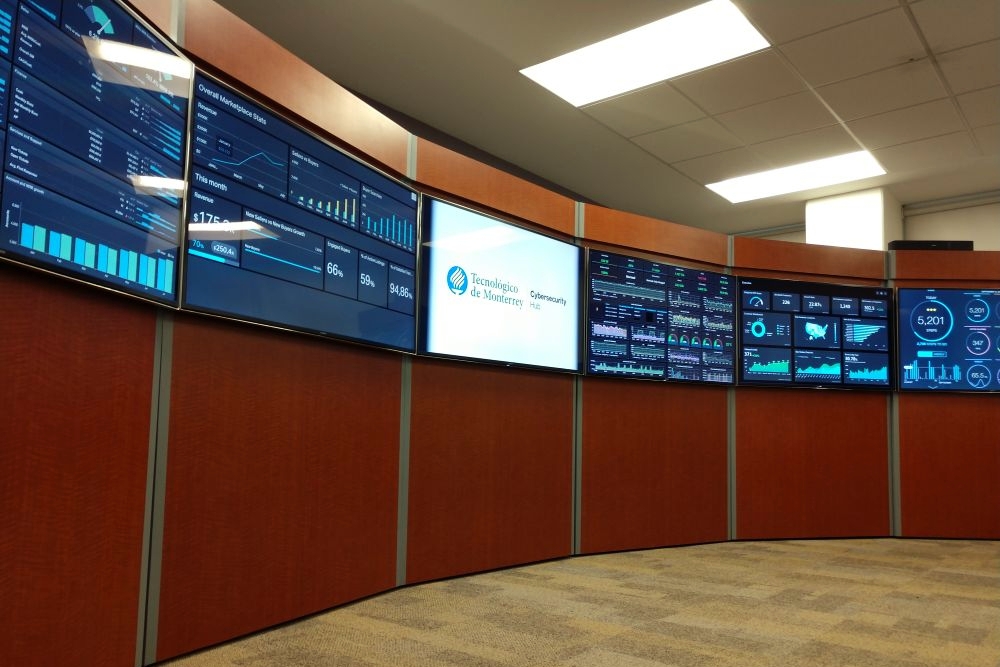Gabriel Pérez Díaz / TecReview
Tec de Monterrey, Cisco, Citibanamex, Deloitte, IBM, Thales and the University of Texas in San Antonio (UTSA) presented the Tec Cybersecurity Hub. The first cybersecurity center in Mexico and Latin America with wide-ranging services which will serve as an operations center for startups, researchers, professors, students and investors to train current and future talent, research, and raise awareness about cyber threats.
“The main objective of this initiative is to promote the development of technologies and capabilities for computer systems, biometrics, forensics, and communications to be more secure, accessible and reliable in the face of online dangers,” stated David Garza Salazar, provost of Tecnológico de Monterrey. Garza added that according to various studies by 2022 the world would have a deficit of 2.2 million workers to serve this field, which could cause many challenges in cybersecurity.
“Artificial intelligence is one of the most critical elements that will help us combat virtual threats. Through our Cybersecurity Hub we seek to integrate the capabilities of different experts to face all sorts of challenges through the development of talent, awareness, and the offer of specialized services, the creation of technologies, entrepreneurship, and research.”
Furthermore, Garza said that one of the characteristics of this technology is that it is open, and it will allow various organizations such as universities, private and public institutions, and experts to join whenever it is necessary.
The importance of the development of this hub responds to the persistent cyber threats that have been growing year after year. According to a study conducted by Kaspersky Lab in 2017, there were more than 700 million cyberthreats in Latin America, a 59% increase compared to 2016, where Brazil represented 53 % of the total, Mexico 17%, followed by Colombia with 9%.
“This platform is critical and is the first step for our country and Latin America to rest assure about the way information is handled,” said Israel Zagal, national director of risk assessment at Deloitte.
Experts also stressed that no company in the world, agency or government has the capacity or sufficient resources to deal alone with this type of threats, so it is essential that agencies join efforts.
“Sharing information and intelligence will allow us to be alert. Also, the era of digitalization has changed our society completely, so it is critical that future generations become aware of the risks involved with new technologies,” said Antonio Quintanilla, president, and CEO of Thales Mexico.
The Tec Cybersecurity Hub seeks to contribute to the positioning of Mexico as an international reference in the cybersecurity field through four lines of work:
-
Training: graduates and postgraduates.
-
Research: cyber forensics, cryptography for devices of low energy consumption, application of intelligent machines for detection and classification of malware in mobile devices, automation of intrusion detection, and use of computational vision in cybersecurity.
-
Services: tests of the information technology infrastructure, computer security audits, information technology risk management.
-
Awareness: conferences, competitions, and seminars.
Unfortunately, experts pointed out that there have not yet been formal approaches by the Mexican government to join this initiative. However, they consider it essential for authorities to be involved in the different programs that aim to have a safer society.
This article from Observatory of the Institute for the Future of Education may be shared under the terms of the license CC BY-NC-SA 4.0 
)
)


)